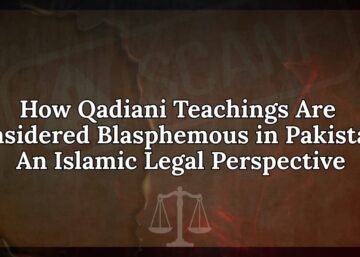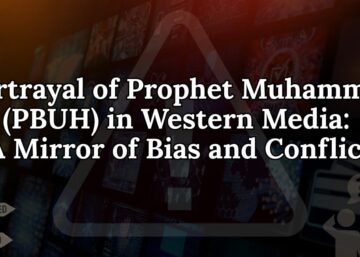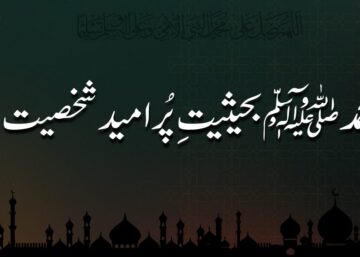Introduction
The concept of prophethood holds a central place in Islam, forming a vital part of the religion’s theological foundation. Prophets were chosen by Allah to guide humanity and deliver His message across different eras and communities. However, with the advent of the Prophet Muhammad (PBUH), the institution of prophethood reached its culmination. The doctrine of the finality of prophethood (Khatm-e-Nubuwwat) asserts that Muhammad (PBUH) is the last prophet, and no new prophet will arise after him. This belief is fundamental to Islamic faith, as it signifies the completion of divine guidance.
Quranic Evidence on the Finality of Prophethood
The doctrine of finality finds its most explicit affirmation in the Holy Quran. In Surah Al-Ahzab (33:40), Allah declares:
“Muhammad is not the father of any of your men, but he is the Messenger of Allah and the Seal of the Prophets. And Allah has full knowledge of all things.”
By stating that Muhammad (PBUH) is the last prophet, the verse affirms the end of prophethood with him. The term “Seal of the Prophets” (Khatam al-Nabiyyin) implies that Muhammad (PBUH) sealed and completed the line of prophets. Scholars agree that this verse leaves no room for the advent of another prophet.
Theological Necessity of Finality
Molana Maududi (religious Islamic scholar) argues that the finality of prophethood is both a logical and theological necessity. Islam presents itself as the complete and universal religion, addressing all aspects of human life. The Quran, as the final revelation, offers timeless guidance applicable to all eras and societies. Unlike previous scriptures that were altered over time, the Quran has been preserved in its original form, ensuring its relevance across generations.
The Prophet Muhammad (PBUH) not only conveyed the final message but also provided a perfect example of how to live by its teachings. His life, recorded meticulously through Hadith and Seerah, serves as a practical model for Muslims. Since the divine message has been perfected and preserved, there is no need for new prophets to arise.
Completion of Religious Law
Islamic law (Shariah) was also completed with the Prophet Muhammad (PBUH). In Surah Al-Ma’idah (5:3), Allah proclaims:
“This day I have perfected for you your religion and completed My favour upon you and have approved for you Islam as your religion.”
This declaration signifies that all necessary religious guidance has been delivered. Previous prophets came to specific nations with messages tailored to their contexts. However, Islam was sent as a universal and eternal message for all of humanity. With the completion of Shariah, the appointment of new prophets is rendered unnecessary.
Prophetic Sayings on the Finality of Prophethood
Numerous Hadiths affirm the doctrine of finality. In Sahih Bukhari, the Prophet (PBUH) said:
“The tribe of Israel was guided by prophets. When a prophet passed away, another prophet succeeded him. But no prophet will come after me; only caliphs will succeed me.”
In another narration, the Prophet (PBUH) likened the line of prophets to a building, with himself as the final brick completing the structure. By emphasizing that no prophet will succeed him, Muhammad (PBUH) made it clear that his prophethood marks the culmination of divine guidance.
Role of Scholars in Post-Prophethood Era
While the door to prophethood has been closed, the role of scholars (Ulama) remains crucial. The Ulama are tasked with interpreting and applying Islamic teachings in light of contemporary challenges. They ensure that the principles of the Quran and Sunnah are upheld and transmitted across generations.
It is important to note that scholars do not claim prophethood or divine revelation. Instead, they derive rulings and guidance from Quran, Hadith and through ijtihad (independent reasoning). By distinguishing between prophets and scholars, Islam maintains the finality of prophethood while ensuring the continuity of religious guidance.
Preservation of Unity
One of the key benefits of the doctrine of finality is the preservation of unity within the Muslim Ummah. Historically, the emergence of false prophets has been a source of division and conflict. By affirming the finality of prophethood, Islam safeguards the community from fragmentation and sectarianism.
The early Muslim community faced significant challenges from false prophets, such as Musaylimah al-Kadhdhab and Aswad Ansi. The decisive response of the companions, led by Abu Bakr Siddiq (RA), ensured that the unity of the Ummah was preserved. This historical precedent highlights the importance of adhering to the doctrine of finality to prevent similar threats in the future.
Conclusion
The finality of prophethood is a cornerstone of Islamic faith, ensuring the completeness and preservation of divine guidance. By affirming that Muhammad (PBUH) is the last prophet, Islam provides a stable and unified framework for its followers. The Quran and Sunnah offer timeless guidance, while scholars play a vital role in interpreting these teachings.
In a world marked by rapid change and ideological challenges, the doctrine of finality serves as a beacon of stability and unity for the Muslim Ummah. Upholding this belief is essential for preserving the integrity of Islam and ensuring its transmission to future generations.



